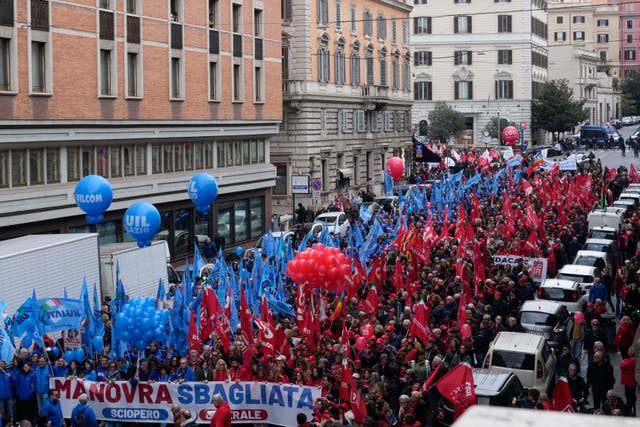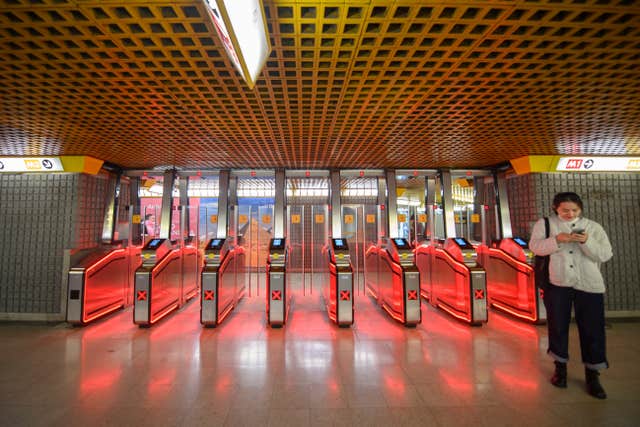
Thousands of teachers, healthcare workers, rubbish collectors and others have walked off their jobs across Italy to protest against a decline in spending power, persistently low salaries and government policies they say have weakened public services.
Italy’s most powerful trade unions called the eight-hour strike and mobilised marches in cities across the country to target premier Giorgia Meloni’s latest budget that they say penalises schools, healthcare and other services.
They also are pressing for a more equitable distribution of profits from private companies to workers.
“These protests don’t just speak to the government,” Maurizio Landini, head of the powerful CGIL conglomerate, told reporters in Bologna. “They speak also to entrepreneurs, managers and businesses, who in these years have made profits like never before.”

The strike forced ITA airlines to cancel dozens of domestic and international flights, and hit schools, hospitals and local transport.
Unions called for an eight-hour strike but transport minister Matteo Salvini imposed an injunction limiting the strike in the transport sector to four hours.
It was the first general strike since last November. Unions faced possible sanctions for involving the healthcare and justice sectors, which have staged strikes recently. The Italian railway, which also has been the target of recent labour actions, was exempted.
Italy’s healthcare sector has been suffering staffing shortages that has forced the hiring of nurses from abroad, with care in the poorer south particularly lagging that in the more prosperous north.

“There are many people who go abroad because the salaries are too low,” said Anna Salsa, a member of the UIL healthcare union, at the demonstration in Rome. “We are forced to do double shifts to give the minimal levels of essential care.”
Protesters also cited persistent increases in the cost of basic necessities.
While starting salaries in Italy are aligned with the rest of Europe, pay increases do not keep pace, said Maurizio Del Conte, a labour law expert at Milan’s Bocconi University.
As a result, Italy’s gross median salary of 35,000 euros a year is at the low end of European averages, well behind its G7 partners in France and Germany.


Why are you making commenting on The National only available to subscribers?
We know there are thousands of National readers who want to debate, argue and go back and forth in the comments section of our stories. We’ve got the most informed readers in Scotland, asking each other the big questions about the future of our country.
Unfortunately, though, these important debates are being spoiled by a vocal minority of trolls who aren’t really interested in the issues, try to derail the conversations, register under fake names, and post vile abuse.
So that’s why we’ve decided to make the ability to comment only available to our paying subscribers. That way, all the trolls who post abuse on our website will have to pay if they want to join the debate – and risk a permanent ban from the account that they subscribe with.
The conversation will go back to what it should be about – people who care passionately about the issues, but disagree constructively on what we should do about them. Let’s get that debate started!
Callum Baird, Editor of The National
Comments: Our rules
We want our comments to be a lively and valuable part of our community - a place where readers can debate and engage with the most important local issues. The ability to comment on our stories is a privilege, not a right, however, and that privilege may be withdrawn if it is abused or misused.
Please report any comments that break our rules.
Read the rules hereLast Updated:
Report this comment Cancel